- Your cart is empty
- Continue Shopping

Product
Introduction: Clokeran, containing the active ingredient Chlorambucil, is a medication classified as an alkylating agent and is primarily used in the treatment of various hematologic conditions. This chemotherapy drug has demonstrated efficacy in suppressing the growth of abnormal cells, making it a valuable tool in the management of certain cancers, particularly chronic lymphocytic leukemia (CLL) and certain types of lymphomas.
Mechanism of Action: Chlorambucil, the active ingredient in Clokeran, works by interfering with the DNA of cancer cells. As an alkylating agent, it forms covalent bonds with DNA strands, disrupting the structure and preventing the cancer cells from dividing and proliferating. By impeding the replication process, Chlorambucil targets and slows down the growth of abnormal cells, ultimately inhibiting the progression of hematologic malignancies.
Clinical Applications: Clokeran is primarily used in the treatment of the following conditions:
- Chronic Lymphocytic Leukemia (CLL): Clokeran is often prescribed for CLL, a type of leukemia characterized by the abnormal proliferation of mature lymphocytes, a type of white blood cell.
- Non-Hodgkin Lymphomas: Certain types of non-Hodgkin lymphomas, especially those that are indolent or slow-growing, may be treated with Clokeran.
Dosage and Administration: The dosage of Clokeran is individualized based on the patient’s specific medical condition, overall health, and response to treatment. It is typically taken orally in the form of tablets. The tablets should be swallowed whole with a glass of water and may be taken with or without food. The treatment schedule and duration will be determined by the prescribing healthcare provider.
Considerations and Monitoring: Clokeran is a potent medication with potential side effects, and its use requires careful monitoring. Key considerations include:
- Myelosuppression: Clokeran may cause a decrease in blood cell counts, including white blood cells, red blood cells, and platelets. Regular blood tests are essential to monitor these parameters.
- Increased Risk of Infections: Due to myelosuppression, patients taking Clokeran are at an increased risk of infections. Precautions to prevent infections may be recommended.
- Secondary Cancers: Long-term use of alkylating agents like Clokeran has been associated with an increased risk of secondary cancers.
- Hepatic Function: Clokeran may impact liver function, and periodic liver function tests are often conducted during treatment.
Side Effects: Common side effects of Clokeran may include nausea, vomiting, diarrhea, and suppression of bone marrow function. Serious side effects, though less common, may include allergic reactions, severe myelosuppression, and an increased risk of secondary malignancies.
Conclusion: Clokeran, with its active ingredient Chlorambucil, is a potent chemotherapy drug used in the treatment of hematologic malignancies, particularly CLL and certain types of lymphomas. Its mechanism of action involves interfering with the DNA of cancer cells, disrupting their ability to replicate and proliferate. While it has proven efficacy, its use requires close monitoring for potential side effects and complications. The decision to use Clokeran is made based on a careful assessment of the patient’s condition by healthcare professionals, and its administration is closely supervised to maximize therapeutic benefits while minimizing risks.
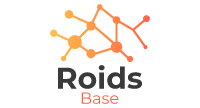

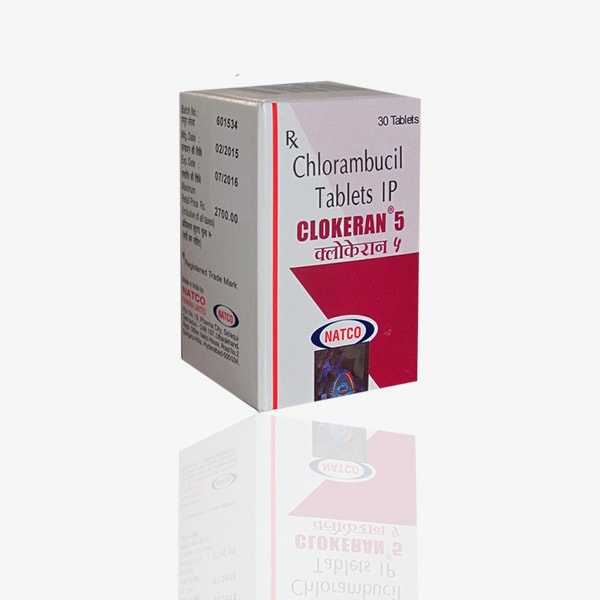
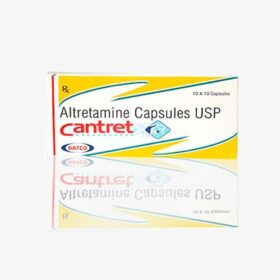



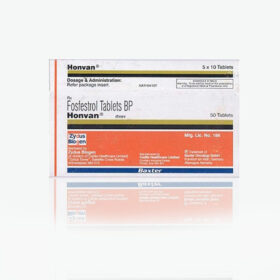
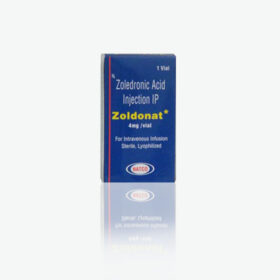

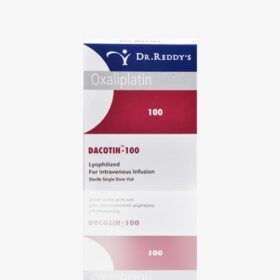



Reviews
There are no reviews yet.